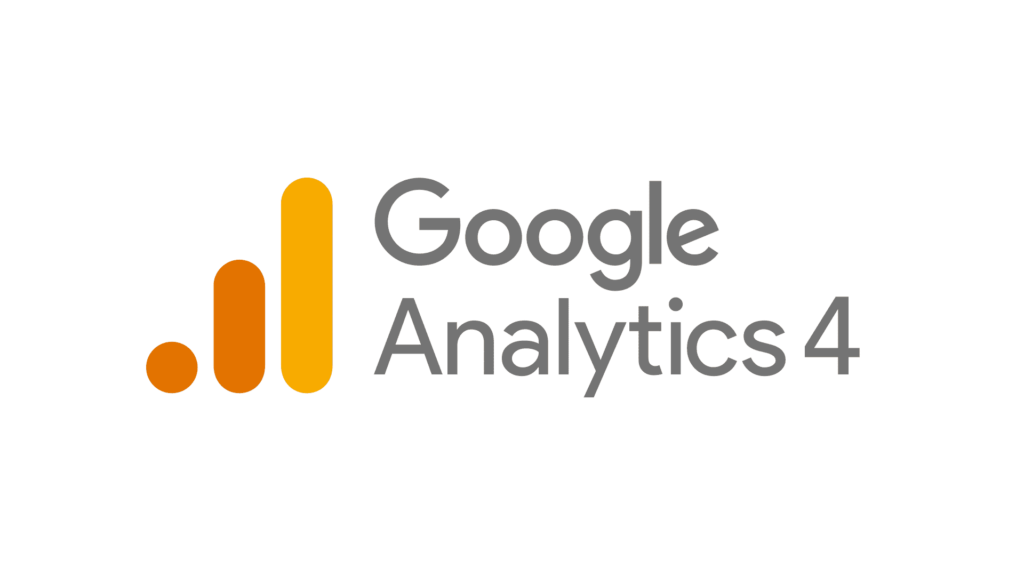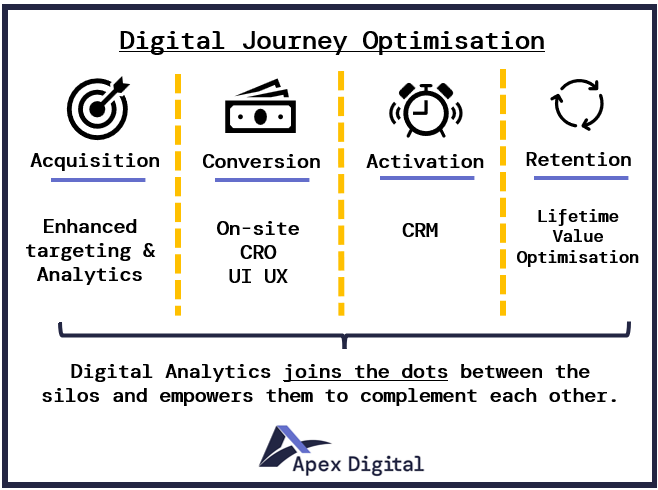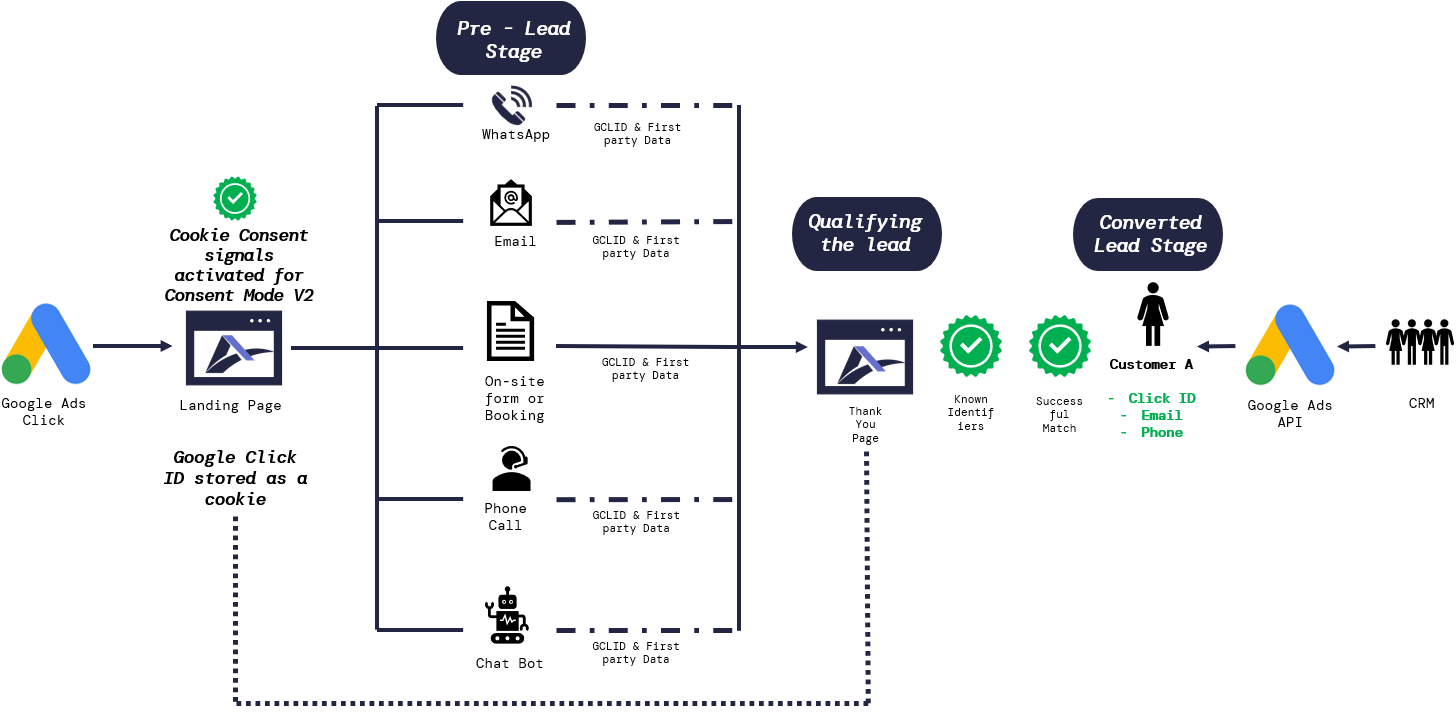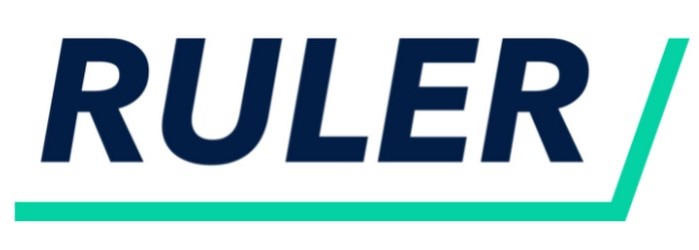Marketing Measurement

Most marketing measurement today is done by just one tool, Google Analytics. If you work in marketing, there is no doubt you have utilised any version of Google Analytics over the past decade.
Our work focuses on optimising and enriching your measurement capability, using Google Analytics as a foundation in our methodology.
What is Marketing Measurement?
Tracking every part of the customer journey, and proactively using data for optimisation
Commonly referred to as “Digital Analytics” or “Web Analytics”, this is what we do at Apex Digital.

Is your data quality letting you down?
Almost every marketing team will have Google Analytics running in the background passively, or will have been actively using it for data and insights for the past two decades.
Many businesses rely on the data that Google Analytics generates to fuel ecommerce merchandising, online marketing, lead generation, campaign optimisation and attributing marketing effectiveness.
If one tool powers all of your marketing, why wouldn’t you invest the time to ensure it collects and reports everything you need it to?
Don’t let your marketing data be a case of..
Garbage in, Garbage out
Many businesses have set up a basic level of GA4 or were auto migrated. There is so much potential with the new data model which will improve your conversions through onsite and offsite optimisation.
Google Analytics is not a one-size-fits-all solution. Each business needs a bespoke implementation depending on exact requirements and conversion points.
We provide full auditing solutions and from-scratch GA4 implementations to ensure the best quality data is collected and used for your business.
Going beyond Web Analytics
How many “sources of truth” does your business have?
Every business we work with benefits from a rationalisation of their reporting surfaces and resulting in one actual source of truth that all business stakeholders trust and rely upon.
How do we do it?
Here’s an example of how we measure Google Ads Conversions:

With the conversion event, we also need to capture Click ID, Email & Phone number.
By ensuring this data is fed back to the thank you page in a hashed format, or by tracking native forms, we will have all three identifiers to enable Google to match back to the original click, therefore providing excellent data collection and a high match rate.
Optimising the Google Ads campaign to converted leads, not just the on site conversions will lead to overall better results if replicated across each and every channel, all reported on a centralised dashboard.
Get In touch
Or book a call directly:
For more thorough data ownership and governance, read about my Server Side Tagging services.
Past & Present Clients:












Read More
-
Poor Conversion Rate? Conventional ‘CRO’ is not the answer
CRO Best Practices to boost your online platform Answering this question is why we have an industry around Conversion Rate Optimisation (CRO). This article will go over common mistakes and CRO best practices. Fundamentally, understanding data and applying it to the business context is the key to success, however, it’s quite common for CRO to…
-
The Google Analytics 4 Session: How it’s calculated
How are Google Analytics 4 sessions calculated? A common question in marketing is, “How many people visited my website last month?” the answer should be relatively simple. Most marketing analysts would use the go-to metric they have always used, and the stakeholders wouldn’t expect anything else: the Google Analytics 4 session. If we break down…